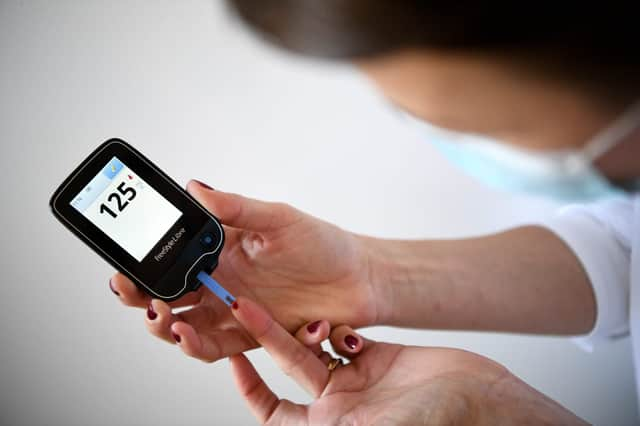Doctors have suggested Covid could cause diabetes - here’s the symptoms to look out for


There is a growing amount of evidence that Covid-19 could cause diabetes, according to a group of scientists.
Doctors have seen an increase in both type 1 and type 2 diabetes in people who have caught the virus.
Advertisement
Hide AdAdvertisement
Hide AdProf Franceso Rubino, from King’s College London, is calling for a full investigation into a possible link between the diseases.
He and others set up a registry, which has received reports from more than 350 individual clinicians who suspect they have seen one or more cases of Covid-induced diabetes.
So, what is diabetes, what is the difference between type 1 and 2, and what symptoms should you look out for?
Here is everything you need to know.
What is diabetes?
Diabetes is a long-term health condition that causes a patient’s blood sugar level to become too high.
Advertisement
Hide AdAdvertisement
Hide AdThe chronic disease affects how your body turns food into energy.
When we eat, food is broken down into glucose and released into the bloodstream. When our blood sugar goes up, a signal is sent to the pancreas to release insulin.
This acts like a key so blood sugar can be let into the body’s cells to be used as energy.
However, if you have diabetes, your body doesn’t produce any or enough insulin, or is unable to use the insulin it makes as well as it should.
Advertisement
Hide AdAdvertisement
Hide AdThis results in too much blood sugar staying in the bloodstream, which can cause serious health issues over time, including heart disease, vision loss and kidney disease.
Around 3.9 million people in the UK have been diagnosed with the disease, according to 2019 figures, yet doctors believe there are thousands of others who are undiagnosed.
What is the difference between type 1 and type 2 diabetes?
Type 1 diabetes is where the body’s immune system attacks and destroys the cells that produce insulin.
It is thought to be caused by an autoimmune reaction, where the body attacks itself by mistake.
Advertisement
Hide Ad